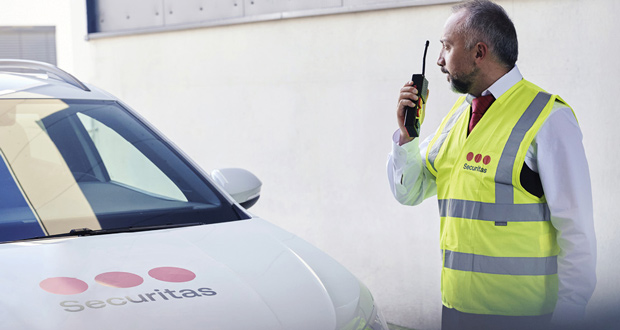 Peter Savva, Head of Mobile Services at Securitas UK, delves into why mobile patrols are the most effective deterrent you may never see
Peter Savva, Head of Mobile Services at Securitas UK, delves into why mobile patrols are the most effective deterrent you may never see
As facilities grow and evolve, mobile security is more essential than ever. For many facilities managers, mobile security patrols are something that happen in the background and a routine part of a broader safety strategy. From a facilities management perspective, mobile security operates largely out of sight. Yet behind each patrol is a tightly planned operation.
When there are no major incidents, patrol officers often arrive after hours, check access points, respond to alarms, and leave reports behind for FM teams to read in the morning. While they may rarely be seen, the role they play in keeping sites safe and operational is far more critical than it might first appear. Their work is no longer just about locks and lights; it’s about being a flexible, responsive extension of your duty of care.
A well-coordinated mobile presence does more than just act as a deterrent. It reduces exposure to theft, vandalism, trespassing and fire hazards. Officers often cover hundreds of miles per shift, managing routes across multiple sites and responding to a wide range of incidents, from alarm activations and access breaches to building patrols, fly-tipping, vandalism, and even meter readings in vacant properties. All of this requires careful planning, coordination and real-time decision-making.
GROWING NEED FOR SMARTER SECURITY
Since the pandemic, there has been a rise in hybrid and home working. As a result, many buildings are left unoccupied for longer stretches – leaving them more exposed. At the same time, as urban development accelerates, facilities are growing in size and complexity, combining offices, apartments and retail space in single sites. These shifting environments demand a more adaptive, mobile approach to security – one that can respond in real time, cover greater ground and adjust to risk as it changes.
In this evolving landscape, mobile patrols offer a critical layer of protection – providing both a visible deterrent and the agility needed to safeguard modern, high-risk spaces. This is especially important given business theft has increased this year according to figures from the government on crime outcomes. While latest figures for personal robbery fell by 10.5 per cent, business theft was up by 50.2 per cent in 2025.
ADAPTABILITY, TRAINING & EMOTIONAL RESILIENCE
In modern day security situations, mobile officers often operate in unpredictable environments and make judgment calls on everything from false alarms to more serious incidents like break-ins or the discovery of unauthorised persons onsite.
Much of this work happens at night and often alone, requiring a level of resilience and professionalism that’s easy to overlook. Hostile encounters, heightened alertness in the dark, and the pressure of being first on scene all contribute to a role that carries real risk and responsibility – often outside the scope of what facilities teams are trained or insured to handle.
Comprehensive training prepares officers to respond with confidence, but sound judgment in high-pressure situations also relies on ongoing development, well-structured shifts, and clear escalation protocols. Because many officers work solo, particularly during unsociable hours, robust lone worker safeguards like timed check-calls and real-time monitoring are essential.
Just as important is recognising the emotional demands of the role. Supporting mental resilience, as well as physical safety, helps officers stay calm and think clearly when it matters most. Looking after frontline personnel isn’t optional – it’s what enables them to protect people, property, and reputations with the judgment the role demands.





